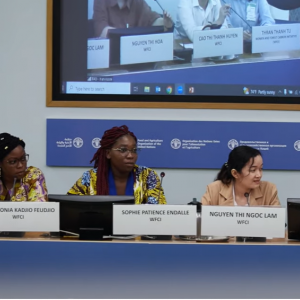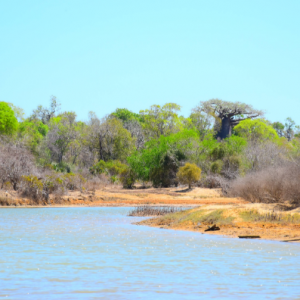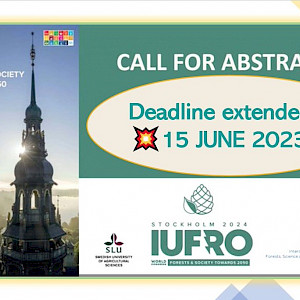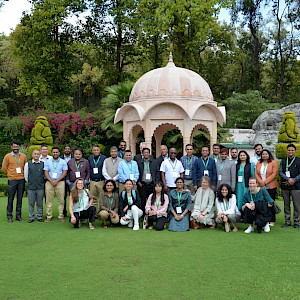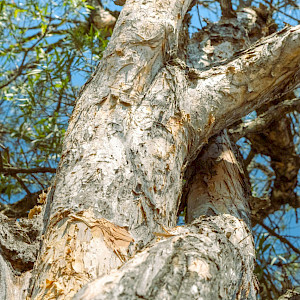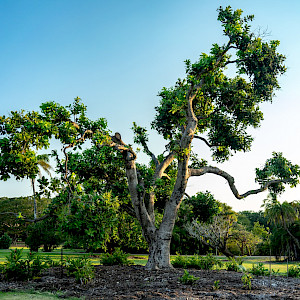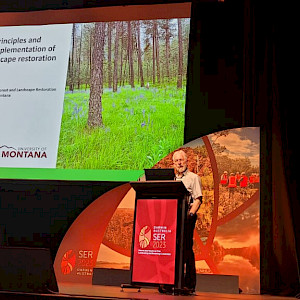The WWF Forest Landscape Restoration Global Lead, Anita Diederichsen, was named as the new chair of the Global Partnership on Forest and Landscape Restoration.Anita follows Adriana Vidal, from IUCN, who had led the GPFLR for the two past years, advancing the governance, communication and policy work of our partnership. Adriana also engaged in key spaces, making sure that forest and landscape restoration is considered as a key solution for our climate and biodiversity global challenges. Jim Hallett continues his journey as the Vice Chair providing strategic and valuable guidance and support. The GPFLR welcomes Anita and celebrates her arrival to continue this important work of strengthening the forest and landscape restoration community. We would also like to share our gratitude for all Adriana ́s leadership and dedication.
Anita has been dedicating all her career to nature conservation and restoration. She brings to this role more than 22 years of global nature conservation and landscape restoration experience on priority setting, strategy design, development, implementation, and monitoring.
Anita is currently the Global Leader on Forest Landscape Restoration in WWF, as part of the Forest Practice from WWF International while embedded in WWF Brazil. Recently, Anita was the Co-Chair of the successful SER 2023, 10th World Conference on Ecosystem Restoration, held in Australia. At the moment she is a member of the Best Practices Task Force of the UN Decade on Ecosystem Restoration and Co-lead the Conservation Coaches Network (CCNET) in Latin America promoting the use of the Conservation Standards from the Global Measures Partnership. Anita is one of the authors of the “Tree Growing for Conservation and Ecosystem Restoration: a Guide for Faith Based Actors”, the “UN Decade Ecosystem Restoration Principles” and the “Standards of Practice for Ecosystem Restoration”.
Previously she was a Director in Conserve Brasil, and before that she worked for more than 10 years at The Nature Conservancy. Anita chose to be a biologist, holds a master’s degree in Environmental Science from Sao Paulo State University, Brazil and second in Conservation and Rural Development, from the University of Kent, UK with a Chevening Scholarship Award from the Foreign and Commonwealth Office (FCO) UK.
"The GPFLR is the right place to promote high quality forest and landscape restoration. It is urgent that we accelerate implementation and effective collaboration is essential. Let’s make sure that we continue to capitalize on the added value of our partnership to make sure that we end this decade under a native positive status. Where there will be more nature than we had in 2021. I invite each GPFLR member to engage and collaborate. Together it is possible”, said Anita.
Jim Hallett
Jim Hallett is a research ecologist and Affiliate Professor in Ecosystem and Conservation Sciences at the University of Montana. He has served in several leadership roles at SER including as Chair (2018-2021). For more than 30 years, Jim has been examining the consequences of land management beginning with landscape composition and context, corridor use, and riparian buffers. He then focused on approaches for evaluating effectiveness of restoration interventions.
With his interests in improving restoration outcomes, he collaborated on the second edition of the Society for Ecological Restoration’s International Principles and Standards for Ecological Restoration. Jim is currently working on development of strategies for prioritizing restoration interventions for large-scale initiatives including forest and landscape restoration (FLR). For the next two is years, he will continue to occupy the vice chair, ensuring the partnership continuity.
“Members of the GPFLR have been effective in advancing forest and landscape restoration (FLR) worldwide. By developing principles for FLR, the GPFLR established the elements required for effective restoration. As the UN Decade on Ecosystem Restoration continues, the GPFLR is positioned to provide continued guidance for restoration that achieves desired outcomes. I look forward to meeting this challenge with Anita Diederichsen from WWF”, Hallett said.
Evaluating FLR programs is complex, and Jim has been collaborating with other GPFLR partners in reviewing how the recently revised FLR principles are being incorporated into monitoring frameworks. He has been a collaborator on initiatives related to the UN Decade including the FAO’s Best Practice Task Force. Jim received his PhD from Texas Tech University, where he studied community ecology.


